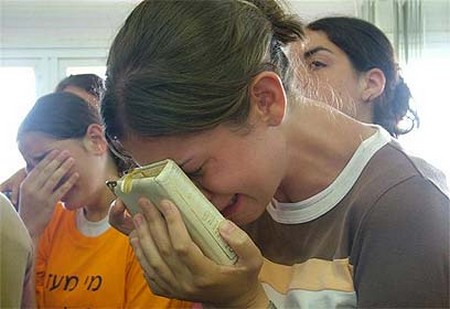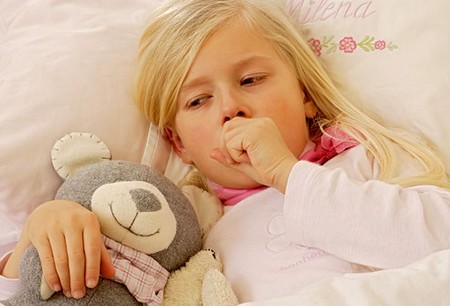Whooping cough, or pertussis, mainly affects children and is particularly serious in babies under a year old. Symptoms include long bouts of coughing, when the child expels air from the lungs, followed by a ‘whoop’, the sound made as breath is rapidly drawn again. Whooping cough is a contagious disease, spread by airborne droplets which lead to inflammation of the upper respiratory tract. Newborn babies are particularly vulnerable as they have not sufficiently developed the technique of drawing in breath. The bouts of harsh coughing can lead to vomiting in some children.
There is an incubation period of one to three weeks and the whooping cough itself can last for ten weeks or even longer. It begins with ‘flu-like symptoms of sneezing, mild coughing, runny nose, fever and aching limbs. The coughing which in most, but not all, cases ends with the ‘whoop’ then becomes worse, particularly at night. Complications such as pneumonia can arise and the vomiting should be monitored in case of dehydration.
The number of cases of whooping cough have dropped in recent years. But in the 1970s, fears of side-effects such as seizures or permanent brain damage led many parents to stop vaccinating their children. But it is again on the increase. If a child has any history of seizure, a progressive neurological disorder, has had a previous reaction to vaccination or is ill at the time, vaccination should not be given.
What you can do
If your child has whooping cough, keep them warm and well rested. Give plenty of fluids. If they are vomiting a lot, keep a bucket and towel nearby and give frequent cups of water with a pinch of salt and a teaspoon of sugar added to help prevent dehydration. Give small snacks to eat after vomiting as they are more likely to keep food down then. During a coughing attack put a bowel under their chin to spit phlegm into. Don’t give cough suppressants.
A baby may need to be kept in hospital under observation to prevent dehydration and to monitor for any signs of other infection.
Treatment
Osteopathy
To help deal with the effects of whooping cough, treatment may include working on a number of areas, such as the spine, ribs and diaphragm to help improve the mechanics °f the chest, lung function and lymphatic drainage and combat scar tissue in the lungs. Exercises may also be recommended to help improve breathing and advice given on posture.
Traditional Chinese medicine
This illness is seen to come in three stages. The first twenty days is a normal cough, the next forty to sixty days the child will have the characteristic whoop and will cough until they vomit. At this stage other problems can set in such as asthma and a weakened stomach. The third stage lasts one to six months when the entire system is weak, known as Qi Xu. The Chinese believe that whooping cough in younger children is a sign of underlying food blockage and if this is treated quickly, recovery can be fast, although there may be set-backs. A mixture of herbs will be recommended for the phlegmy cough. Patients may also be given Fritillaria and loquat syrup which is said to be helpful.
Homoeopathy
A homoeopath may recommend Drosera if your child’s throat is dry and tickly, they fight for breath between coughs and vomit after coughing hard. If the coughing is worse at night, the child vomits up stringy mucus and is helped by sipping water, Coccus may help to bring relief. If the coughing is worse in the early hours of the morning and the cough is a dry, hacking one, Kali carb. may be recommended. If the mucus coughed up is yellow and stringy, Kali bichrom. may help.
Caution
Seek medical help immediately if you think your child may have whooping cough.

